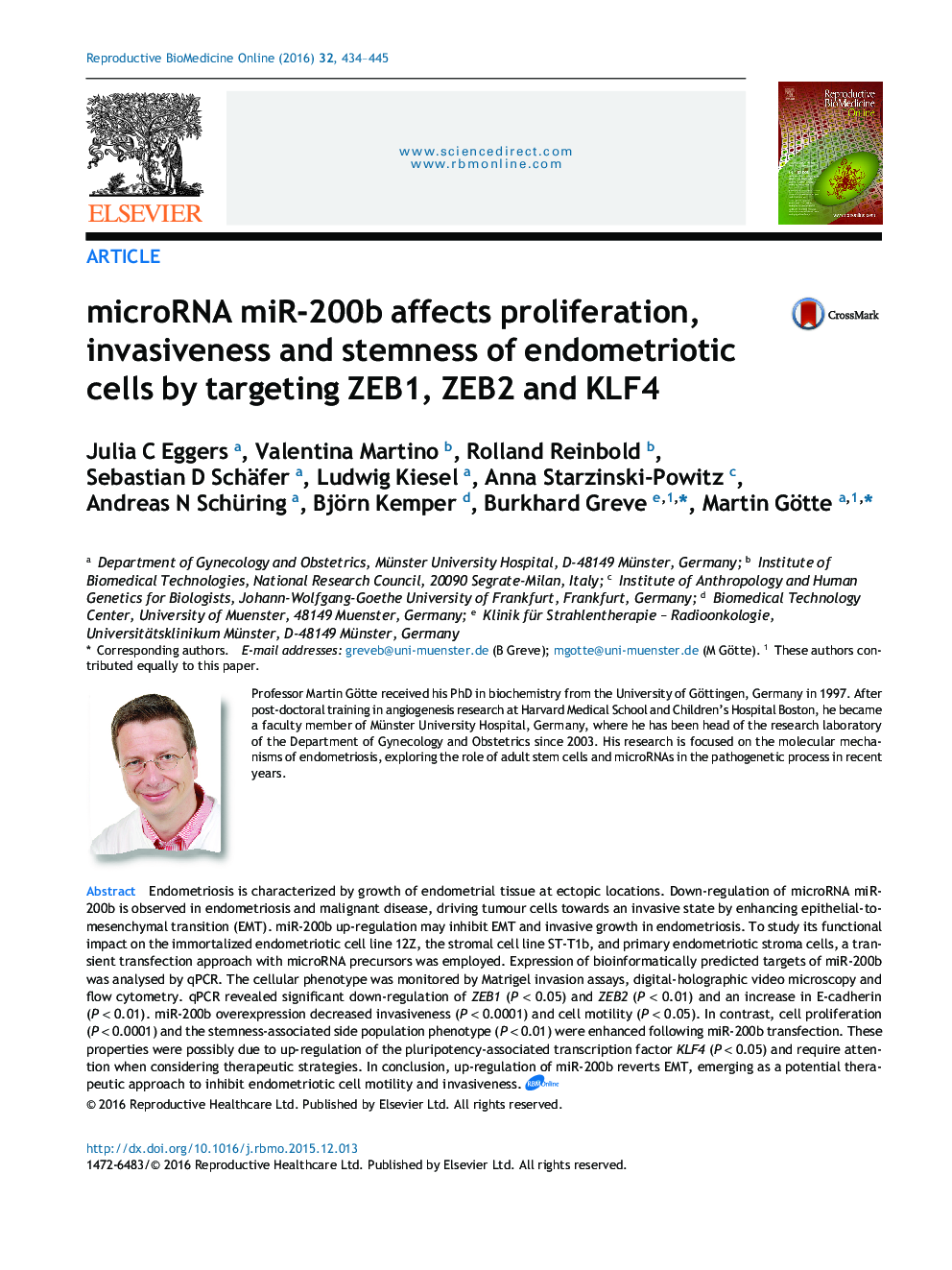| Article ID | Journal | Published Year | Pages | File Type |
|---|---|---|---|---|
| 3969956 | Reproductive BioMedicine Online | 2016 | 12 Pages |
Endometriosis is characterized by growth of endometrial tissue at ectopic locations. Down-regulation of microRNA miR-200b is observed in endometriosis and malignant disease, driving tumour cells towards an invasive state by enhancing epithelial-to-mesenchymal transition (EMT). miR-200b up-regulation may inhibit EMT and invasive growth in endometriosis. To study its functional impact on the immortalized endometriotic cell line 12Z, the stromal cell line ST-T1b, and primary endometriotic stroma cells, a transient transfection approach with microRNA precursors was employed. Expression of bioinformatically predicted targets of miR-200b was analysed by qPCR. The cellular phenotype was monitored by Matrigel invasion assays, digital-holographic video microscopy and flow cytometry. qPCR revealed significant down-regulation of ZEB1 (P < 0.05) and ZEB2 (P < 0.01) and an increase in E-cadherin (P < 0.01). miR-200b overexpression decreased invasiveness (P < 0.0001) and cell motility (P < 0.05). In contrast, cell proliferation (P < 0.0001) and the stemness-associated side population phenotype (P < 0.01) were enhanced following miR-200b transfection. These properties were possibly due to up-regulation of the pluripotency-associated transcription factor KLF4 (P < 0.05) and require attention when considering therapeutic strategies. In conclusion, up-regulation of miR-200b reverts EMT, emerging as a potential therapeutic approach to inhibit endometriotic cell motility and invasiveness.
